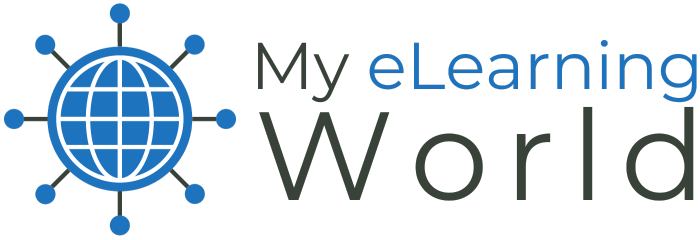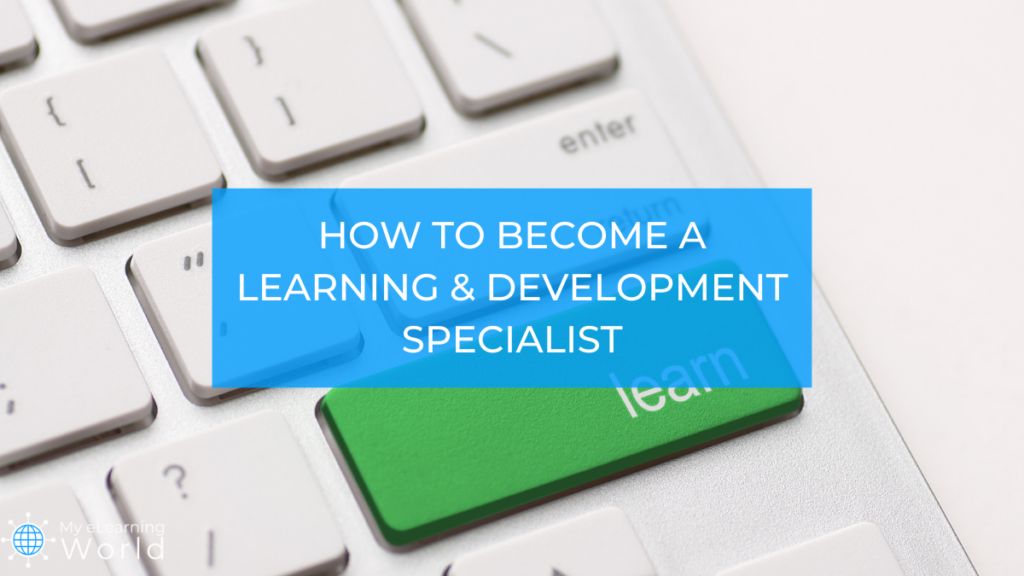Are you looking for easy-to-understand advice that will show you exactly how to become a learning and development specialist?
If you want to work in a field that allows you to help people learn and grow, becoming a learning and development specialist (also known as a training and development specialist) may be the perfect career.
L&D specialists are in high demand, and they play a vital role in helping organizations and individuals succeed by facilitating the transfer of knowledge, skills, and abilities.
Of course, to become a learning and development specialist, you need to have the right qualifications and training.
In this article, we’ll look at what learning and development specialists do, what skills they need to succeed, and how to start a career in this field.
Read on for our step-by-step guide on how to become a learning and development specialist.
What is a Learning and Development Specialist?
A learning and development specialist is a professional who designs and delivers training programs to help individuals and organizations improve their performance.
L&D specialists are often referred to as training and development specialists or performance consultants.
The terms “learning and development” and “training and development” are often used interchangeably. However, there is a difference between the two. Training is focused on teaching specific skills or knowledge, while development is geared towards helping individuals grow and progress in their careers.
L&D specialists use a variety of techniques to create programs that meet the needs of their clients. They may use instructional design principles to develop course materials and employee training programs, or they may utilize adult learning theories to create engaging and effective programs.
In addition to designing and delivering training programs, learning and development specialists may also be responsible for evaluating the effectiveness of their programs. They may use data and feedback to assess whether or not participants are meeting the program’s objectives.
What Skills Do You Need to Become a Learning and Development Specialist?
If you’re interested in becoming a learning and development specialist, you’ll need a few skills to succeed in this field.
- Written and verbal communication skills–L&D specialists need to clearly and effectively communicate with their clients, participants, and colleagues. Like any other job, communicating effectively is essential for success. Even if you’re the best training and development specialist, you won’t be successful if you can’t communicate your ideas to others. Since much of what learning and development specialists do is reliant on collaboration, communicating effectively is crucial.
- Organizational skills–L&D specialists need to manage their time effectively and juggle multiple tasks at once. They also need to work well under pressure and meet deadlines. If you’re not naturally organized, that’s okay. There are plenty of tools and resources available to help you get your life in order. However, it is important that you’re aware of the importance of organization and that you’re willing to invest the time and effort into becoming more organized.
- Analytical skills–Training and development specialists need to be able to understand and analyze data. They use data to assess their programs’ effectiveness and make improvements. Like when we communicate, when we work with numbers and data, we must understand what we’re looking at. Otherwise, we can misinterpret the data and make wrong decisions.
- Interpersonal skills–Training and development specialists need to be able to build relationships and collaborate with others. They also need to understand the needs of their clients and participants. Strong interpersonal skills are important in any profession, but they’re especially important in learning and development. After all, much of what we do relies on our ability to work with others.
- Problem-solving skills–L&D specialists need to be able to identify problems and create solutions. They also need to think critically and outside of the box to come up with learning programs that are effective, efficient, and creative.
- Cultural competence skills–Another important skill for learning and development specialists is cultural competence. Cultural competence is the ability to understand, appreciate, and work with people from diverse cultures. They’re also able to communicate effectively with people from all backgrounds.
These are just a few of your skills to become a training and development specialist. If you have these skills, you will succeed in this field.
Step-by-Step Guide to Becoming a Learning and Development Specialist
If you’re interested in becoming a learning and development specialist, here’s a step-by-step guide to help you get started.
1. Get the proper education
The first step to becoming a learning and development specialist is to get a degree or certification in this or a related field. Many different fields would be considered relevant, such as education, instructional design, human resources, or organizational development.
While having a degree in a related field is not required, it will give you a strong foundation of knowledge to build upon. It may also make you more attractive to potential employers. Another option is to get an industry-relevant professional certification, such as the Professional Certificate in Instructional Design from Emeritus.
 Emeritus Professional Instructional Design Certificate | Online Certificate Course
Emeritus Professional Instructional Design Certificate | Online Certificate Course
Gain firsthand expertise in instructional design principles and methodologies through this unique Professional Certificate program. Create impactful learning solutions and improve people's ability to learn.
The next class kicks off on October 22, 2024, so don't miss your chance to enroll now! Take advantage of early bird discounts leading up to the kickoff date:
20% off until September 3
15% off until September 24
10% off until October 15
This comprehensive certificate program is perfect for aspiring training and development specialists as it offers participants hands-on experience with cutting-edge eLearning principles and methodologies. You’ll be prepared to create solutions that drive high-quality learning outcomes.
The program covers everything from the basics of instructional design to popular instructional design theories and best practices for the implementation and iteration of your online learning modules and training materials.
In just 5 months, you can get all the training you need to become an eLearning professional.
You can learn more about the program and request a brochure at this link.
2. Get experience in the field
The second step is to get experience in the field. There are many ways to do this, such as working as a teaching assistant, instructional designer, or training coordinator.
Getting experience in the field will help you better to understand the work of a learning and development specialist. It will also allow you to develop the skills you need for the job.
While you don’t need to have years of experience to become a learning and development specialist, any experience you can get will be beneficial. You may even want to consider finding an internship in the field.
3. Build a portfolio
Having a strong portfolio with examples of your work is essential for getting hired as a learning and development specialist. Your portfolio should include any relevant projects you have completed, such as instructional materials, eLearning courses, or training manuals.
When creating your portfolio, make sure to focus on showcasing your best work and highlight any feedback you have received from clients. This will help demonstrate your competencies and skills to potential employers.
It’s also a good idea to showcase a diverse range of work in your portfolio if possible. This could include documents, presentations, and audio or video clips.
Don’t have anything to show in your portfolio yet? You could start by designing some sample projects that demonstrate your skills and using them to build your portfolio. Alternatively, you could reach out to organizations in the learning and development field for volunteer work or internships in order to get hands-on experience.
4. Join a professional organization
Another good step is to join a professional organization, such as the Association for Talent Development (ATD) (formerly the American Society for Training and Development [ASTD]).
Joining a professional organization will give you access to resources, networking opportunities, and professional development opportunities. When you’re a member of a professional organization, you’ll also be able to stay up-to-date on the latest trends and developments in the field.
Always try to stay active in your professional organization and participate in activities and events. If you want to learn more about a certain topic, consider attending a conference or webinar.
5. Keep your skills up-to-date
The final step is to stay up-to-date on the latest developments in the industry. The field of learning and development is constantly changing, so you must keep up with the latest trends and developments.
You can read industry publications, attend conferences and webinars, or take courses further if you want to become a learning and development specialist.
You can take many different paths to become a learning and development specialist. But most likely, it will involve some combination of education, experience, and certification. And it will require you to be knowledgeable in adult learning theory, instructional design, and e-learning platforms and tools.
By following these steps, you can become a learning and development specialist. Remember to start with a solid foundation, get experience in the field, and stay up-to-date with the latest trends.
A Final Word on Becoming a Learning and Development Specialist
Becoming a learning and development specialist can be a rewarding career choice. It’s a constantly changing field, so there are always new challenges to keep you engaged. Plus, it’s a great way to help others learn and develop their skills.
If you’re interested in becoming a learning and development specialist, the first, most important step is to start getting the education you need to build a strong knowledge base, and one of the best ways to do that is by checking out the Professional Certificate in Instructional Design from Emeritus. It will equip you with many of the skills you need to be successful in this field.
Whether you are just starting or looking to make a career change, becoming a learning and development specialist is a great option. So why not get started today?
Have any questions about how to become a learning and development specialist? Comment below and we’ll help.


